Today, you’re going to learn how to start your self love journey: what self-love is and what self-love isn’t, how to practice self-love.
To love yourself might be the hardest thing to do.
Our inner critical voice is constantly telling us where we could do better and what we should have done differently.
And there is nothing wrong with criticizing yourself. It helps you improve and make better choices.
However, when your inner critical voice takes over and all it does is talk negatively, set unattainable goals for you, drive you to perfection all the time, it becomes an issue.
But how do we stop self-loathing and simply love ourselves?
Self-loathing
In essence, self-loathing is an extreme form of low self-esteem. You beat yourself up over everything you do believe that you can’t do anything right and that you’re worthless.
Most importantly you don’t believe you are worthy of anyone’s love. These thoughts are dangerous and can become a self-fulfilling prophecy.
Examples of self-loathing can be statements such as: I am incompetent, not good enough, stupid, ugly, embarrassing, etc.
Related: Self-Abandonment: What Is It & How To Get Back In Touch With Yourself
Self-loathing vs. Conscience
Many people with low self-esteem confuse self-loathing with a conscience. They believe that their inner critical voice is the voice of consciousness.
While your consciousness tells you what is morally correct and how to behave responsibly, self-loathing, on the other hand, beats you up for everything you are without you challenging it or recognizing that something is wrong with the way you talk to yourself.
Related: How To Stop Self-Critical Thoughts Using These Top 10 Techniques
8 Signs That You Have a Self-Loathing Mindset
1. Apologizing for everything that goes wrong. You think you are always at fault.
2. Setting goals low so you won’t disappoint yourself. You believe you’re not capable of reaching bigger goals.
3. Physical neglect. You do not care about your physical appearance and basic personal hygiene.
4. Struggling to accept compliments. You always worry about the intent behind compliments.
5. Constantly comparing yourself to others.
6. Depending on spending for approval. You need to acquire material goods to feel good about yourself or you buy ‘affection’ through expensive gifts.
7. Depending on social media for approval. You find yourself constantly checking your likes and followers number and posting on your “pretend life”.
8. Feeling afraid to fall in love. You’re convinced that once your partner discovers the real you, he’s going to leave. Which becomes a self-fulfilling prophecy. If you won’t love and accept yourself, who else will?
What Causes Self-Loathing?
Self-loathing starts in childhood
Your critical inner voice can develop early on as you find yourself trying to figure out life and how to live it. It affects your thoughts and controls your behavior.
You believe it’s protecting you but in reality, it’s reinforcing feelings of guilt and shame and self-destructive behaviors.
As a child, you were extremely sensitive to the smallest increase your one or both of your parents’ levels of anger and stress.
Some children were abuse emotionally (were literally taught that they are worthless, bad, inadequate, not good enough, etc.) or even verbally and physically.
Even well-meaning parents, who did not understand the implications of some of their words, might have caused their child to take these words as core beliefs.
Fortunately, for most, negativity and anger episodes are few and far between. But for others, their experiences could have piled on guilt and shame leading to self-loathing.
Related: Shadow Work For Self-Love (+FREE Shadow Work PDF Download)
Confirmation bias
Confirmation bias is a term used to explain the tendency for your mind to search for evidence to support your beliefs.
When you struggle with self-loathing, you will actively search for evidence that will support your beliefs about yourself. The evidence is mostly pure fabrications, whereas anything that suggests otherwise you will reject it.
This makes self-loathing a learned behavior, but it also means that it can be unlearned.
What Does Self Love Mean?
Self-love is about making space and prioritizing yourself. It allows you to embrace your life completely and wholeheartedly.
Practicing self-love helps you extend kindness and compassion toward yourself when you’re struggling and forgiveness when you make mistakes.
Self-love is a realistic, appreciative opinion of oneself.
“Realistic” means that we are aware of our strengths and weaknesses.
“Appreciative” means that we have an overall positive feeling about our self, despite our imperfections.
Related: Best 25 Journal Prompts For Self Love And Confidence Building
What Self-Love Isn’t
Self-love does not equal perfection. If anything, people who are neurotically driven toward perfection are often trying to compensate for a lack of self-esteem.
Self-love is not narcissism—the false security that implies that one is more worthwhile than others and should be on a pedestal. If anything, narcissism leads one to overcompensate by having feelings of grandiosity or entitlement.
Finally, self-love is not selfish. A selfish person is someone who cares only for himself. The other extreme is someone who cares only for others. A person with healthy self-esteem has healthy regard and respect for self and others.
Healthy self-love and wholesome humility come hand in hand. A person who feels humility recognizes that all people are worthy and that we can learn from everyone.
Related: Best 18 Self Compassion Journal Prompts (+FREE Worksheets)
It’s Not All Bubble Baths and Manicures
Most people believe that self-love is indulgent and luxurious. They believe that they don’t have the time for it when their work and families demand so much time and energy.
Relaxation and pampering are good ways to practice self-care and self-love. But true self-love is more about creating an authentic life, identifying our values, and being honest with ourselves. It’s also about breaking free from self-destructive patterns and negative beliefs.
True self-love comes from deep within.
The pathway to self-love must include deliberate practice and mindful focus to build this skill. Your willingness to practice these habits is the fuel that will get you there.
Related: Raising low self-esteem: 18 Ways to Build High Self-Esteem
How To Start A Self Love Journey?
Step #1. Accept Yourself
When you start loving yourself, you stop feeling threatened by other people’s opinions and you become able to accept yourself fully.
The following are some of the best ways to love yourself:
1. Appreciate How Special You Are
You are living life according to your own unique path. You were given special talents and gifts to share with the world. You have created your own unique reality with your own unique thoughts.
No one will think your thoughts the way you think them, and no one will ever be exactly like you. You’re special.
2. Drown Yourself In Affirmations
Affirmations are one of the best techniques to rewire your brain and train it to think positively. Even if you don’t believe these affirmations, repeating them over and over again will make you believe.
Choose some affirmations and repeat them all day long. Write them on Post-it notes and stick them around your house.
The following are some examples of self-love affirmations:
• My heart is open. Love pours in and out.
• I am worthy of infinite compassion.
• My body is beautiful and expresses my spirit.

3. Do Things You Love
Make yourself a priority.
No matter how busy you are, always make time to do the things you love. It can be anything from a weekend getaway to reading a book for a writer you love.
It’s about being proactive about creating a life you love instead of being stuck with one you don’t love. It’s about being generous with yourself and giving yourself the gift of a joyous life.
LIST OF PLEASURABLE ACTIVITIES
Related: Top 45 Self Care Day Ideas at Home To Kickstart Your Self Care Ritual
4. Ditch The Self-Deprecating Humor
Self-deprecating humor can be funny, but incessant self-deprecating humor can make you believe you are a loser. It’s like hitting yourself over and over again.
Why would anyone do that?
What you tell yourself on a daily basis is more powerful than you think. Seemingly harmless humor, over time, can turn into destructive beliefs.
5. Don’t Compare Yourself to Others
Comparison is the fastest way to bring yourself down.
It doesn’t matter what other people are doing or how far they’ve come. Everyone works at his own pace. Everyone is unique, and no uniqueness is better than the other.
6. Forgive Yourself
Mistakes provide much-needed lessons that we couldn’t have learned otherwise. There’s no shame in making mistakes, so learn your lesson and get over it.
Dragging around guilt and self-criticism won’t make you a better person, just a sadder one.
Related: Best 21 Forgiveness Journal Prompts (+FREE Worksheets PDF)
Step #2. Know Yourself
The path to personal growth starts with acknowledging who you are and accepting yourself before you can start building.
You can know more about yourself by asking these questions:
Do I like what I’m doing now?
Many people don’t like what they do for a living.
They do it simply out of the necessity of having to make a living, or out of fear of uncertainty and the fear that they might not find anything better.
There’s definitely a risk in changing what you’re currently doing. You might fail or you might take a pay cut.
But which risk you would rather live with, the risk of failure, or the risk of coming to the end of your life with regrets that you never did what you love?
What would I like to do?
Passion gives you an advantage over others. It gives you energy.
You’re more likely to succeed and reach your potential doing something you’re passionate about than doing something you’re merely interested in.
If you don’t know what you really love to do yet, keep searching, because once you find it, you’ll bring something extra to your work that will guarantee your success.
Can I do What I like to do?
There’s a big difference between having a dream that drives you to achieve and “pulling an idea out of thin air” that doesn’t align with who you are and what you can do.
You need to know the difference between what you want and what you’re good at. Your dream should also be aligned with your values and priorities in life.
Finding your desire is the result of knowing yourself including knowing your values, priorities, what drives you in life, what gives you satisfaction most, your abilities and talent…
Related: Lack Of Self Awareness: 5 Signs & 5 Tips On How To Increase Self-Awareness
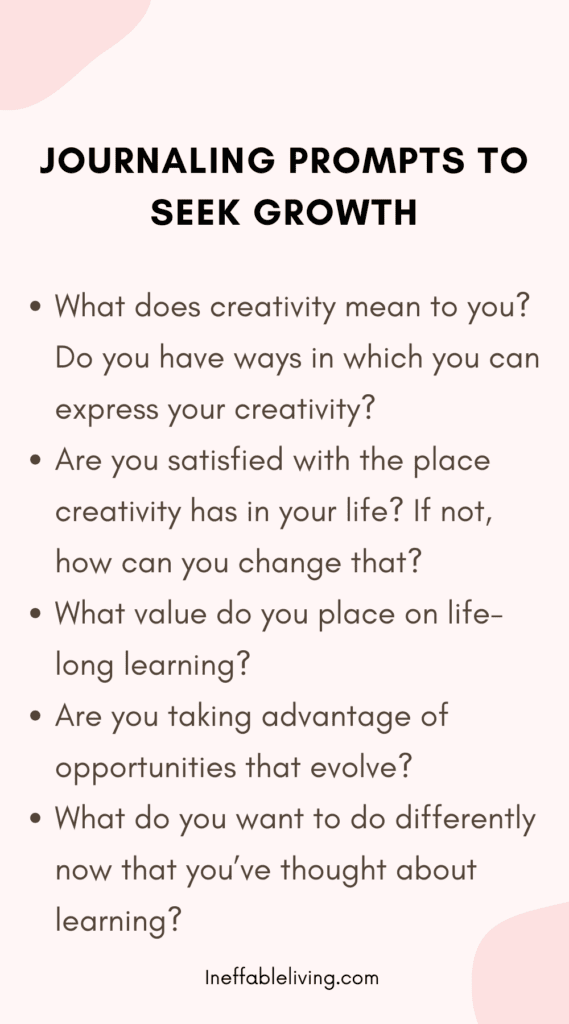
Step #3. Don’t Care About What Other People Think
This is not just about denying criticism, but it’s also about not getting caught up in the praise. Your self-worth isn’t based on what everyone else thinks of you. Don’t depend on a source outside yourself for validation.
So how can you truly stop caring what other people think and be your most powerful Self?
Related: How to Overcome People Pleasing for Good?

1. Be Honest With Yourself
Make it a habit to consciously examine what you do or say and ask yourself, “Why Am I about to do or say this? Is it to be liked? To put someone down because I’m feeling insecure? Or is it coming from a place of strength and truth?”
By bringing awareness to your motivations, you start acting and talking from a place of integrity.
2. Always Do Your Best
We fall prey to outside validation when we’re feeling insecure. And nothing can make us more insecure like knowing that put little care and effort in doing something, or not believing in what we’re doing.
Whatever it is that you’re doing, make sure you do your best and you do it from a place of integrity.
3. Find A Temporary Role Model
Not caring what others think is a habit that takes time to build up. By finding a mentor or a role model, when faced with a challenge, you give yourself a clear answer to the question “What would my hero do?”
Soon enough, you’ll be able to ditch your role model and start asking yourself instead “What Would I do?”
4. Love Yourself
Unconditionally and no matter what everyone else thinks.
Not caring about what others think is a skill worth acquiring. But that doesn’t mean that you should miss out on the opportunity to benefit from outside input altogether.
You need to consider constructive criticism and constructive complimenting, especially when they come from those who love you and know you well. It’s an opportunity for personal growth.
Step #4. Get Clear On Who You Are And What Your Calling Is
Getting clear about what your calling is will make your life happier and more fulfilling.
Each one of us has talents and gifts to share with the world. Only when you share what you were brought here to give, that you are in alignment with your highest self.
The following are some ways to get clear on who you are and what your calling is:
1. Be The Alien
Like an alien who just landed on Earth and to whom everything is new and exciting, look around and ask yourself how are you going to use this body and this existence to create something awesome starting right now?
This strategy will help you get a new perspective and step outside of your old excuses and lame habits. It can also make you more aware of the endless resources that you have and take for granted or do not see.
2. Take The First Right Step
Instead of wasting your time trying to figure out and plan your next perfect move, just do something already. No matter how clueless you may feel right now, take action. You don’t have to know exactly where it’s going to take you, you just need to take the next step that feels right and see where it leads.
3. Do Your Best Wherever You’re At
Your first step might not land you in your dream situation right away, but it might be your stepping-stone. But no matter where it lands you, appreciate wherever you’re at. Acknowledge that everything you do along the journey contributes to where you’re going.
Perhaps you want to have your own business, but right now you need enough experience and network, so you work under someone else. Having a good attitude and being grateful even if you’re not having your dream, will raise your frequency and attract the right people and opportunities that will take you in the direction you want to go.
4. Don’t Reinvent The Wheel
You don’t have to invest your ideal life from scratch. Look around and see what other people out there are doing that you would love to do and that makes you feel alive the most. Is it that they have a solid routine? No routine? It is the fact that they get to travel the world?
The more specific you get about the things that turn you on, the easier it will be for you to picture what you want in your own life.
5. Don’t Get Caught Up In The Thunderbolt Hype
Many people share the misconception that your true calling is going to come to you in a “mighty flash of soul-defining insight”. Even though many people have always known exactly what they want to do, the majority of us are clueless.
Remind yourself that it’s fine not to have your calling figured out at the very beginning. You might even fulfill several callings throughout your life that evolve as you age. Always do what feels right to you and you’ll be sure you’re walking your destined path.
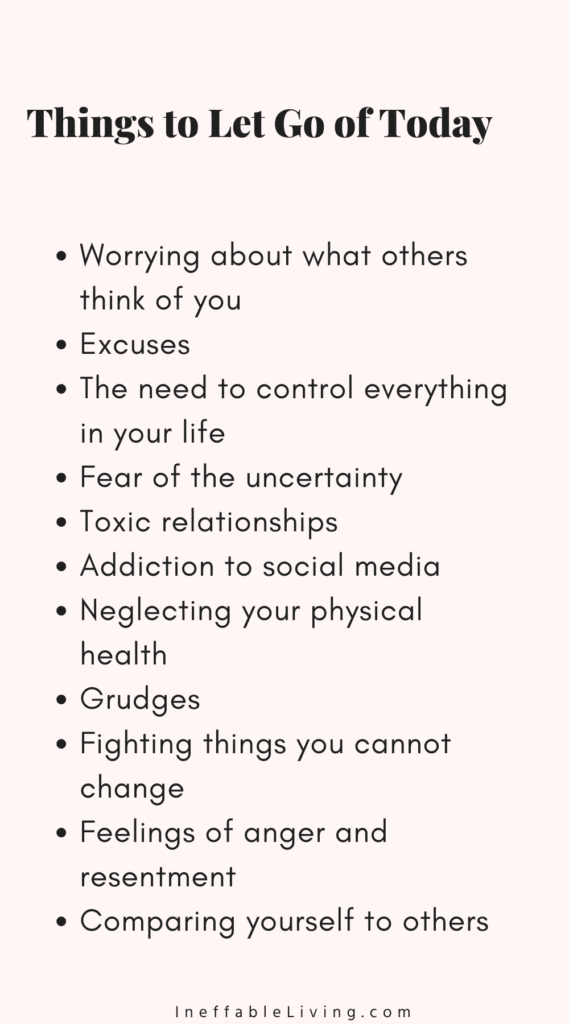
Step #5: Shift Your Thoughts
Your thoughts are the most powerful tool you’ve got to create the life of your dreams.
You created the reality you’re living with your thoughts, which means that you can use the same power of thought to change it.
The following are some ways to change your thoughts and create your desired reality:
1. Act As If
Fake it until you make it.
Whatever you want, believe you can have it, even if you don’t have any evidence that it’s possible. Act as if it’s happening and stay open of opportunities that will lead you to your goal.
2. Surround Yourself With People Who Think The Way You Want to Think
You become like the 5 people you spend most of your time with.
Stay away from people with negative thoughts and start hanging out with people who see abundance everywhere. Spend more time with people you want to think like they do.
If you don’t know anyone who inspires you, make new friends.
Step #6: Give And Let Give
Giving is one of our greatest joys. When we trust that universe we live in, is abundant and allow ourselves to give freely, we raise our frequency and put ourselves in the position to receive abundance in return.
On the other hand, when we are scared to share because we don’t trust there’s more, we are creating more of the very thing we’re trying to avoid, which is lack.
We live in a universe where every action has an equal and opposite reaction; breathe and exhale, give and receive. This is why the more you give, the more you’ll receive, and vice versa.
Here are some ways to increase the give and receive flow in your life:
1. Pick one or two causes that have real meaning to you and give to them regularly. Give it some of your time and money until it becomes a habit. Even the smallest amounts count.
2. Leave a dollar more than you normally tip.
3. Smile and compliment people as often as possible.
Related: Best 9 Tips On How To Receive More In Life And Relationships?
Step #7: Cultivate An Attitude of Gratitude
Having gratitude goes way beyond having the good manner of simply saying “thank you” when receiving something from someone.
Being in a state of gratitude is about having awareness and deep appreciation for the many blessings in your life.
And because gratitude makes you feel good, it puts you at a very high frequency to manifest more good feelings, things, and experiences into your life.
Here are some ways to practice gratitude:
1. Finding benefits
When someone unfortunate or annoying happens to you, meet it with the statement, “This is good because…” and fill in the blank.
For example, “This is good that I got a flat tire on my way home from picking up my kids. I’ve shown them how to change a tire.”
When you make this a regular practice, you’ll be able to see how easy it is to be grateful by always focusing on the positive.
2. Start a gratitude journal
Every day write down in a journal five things you’re grateful for in your life. It could be seemingly small things like the fact that your heart is beating, the flowers in your garden, the beautiful sunset…
Related: Daily Gratitude Ideas: 10 Ways to Practice Gratitude Every Day
Step #8: Forgive and Let Go
When we physically hurt ourselves, we do anything to get the pain stop even if it would include pouring a disinfectant that stings on an open wound. We do it because we’re focused on one ultimate goal, which is a relief.
However, when it comes to emotional pain, we tend to prolong our misery by holding to our ill feelings and wallowing in our guilt, shame, and resentment, sometimes for our entire life.
Instead of letting these feelings go, we hold on to them, reliving them over and over, somehow believing that we’re going to make those who hurt us feel as badly as they’re made us feel.
The truth is holding on to resentment is like drinking poison and waiting for your enemy to die.
Holding on will not change anything, it will keep you a prisoner to your pain.
The moment you decide to forgive and let your negative feelings behind, you are on the road to freedom.
Forgiveness is about you, not the person you need to forgive. It’s putting your desire to feel good before your desire to be right. It’s about taking responsibility for your own happiness instead of pretending it’s in someone else’s hands.
Here are some ways to help you forgive:
1. Find Compassion
One of the best ways to find compassion for someone who hurt you is to imagine this person as a little kid who is acting out of fear in an attempt to protect themselves.
People usually act poorly when they’re in pain. Understanding this will help you find compassion for them. The same goes for anything you need to forgive yourself about.
Related: 12 Actionable Tips to Fix Lack of Empathy and Become a Strong Empath
2. Erase The Other Person From The Equation
Imagine yourself hanging out in your brand new boat when another boat bangs into you, leaving a scratch. If no one is on the boat, there’s no one to get mad at, and you deal with the situation in a calm way.
However, if someone is on the boat, you deal with it by going crazy.
The same situation, two different ways to react. One will leave you raging, the other opens your heart.
By refraining from blaming the other person, you erase him from the equation, and you start focusing on the situation at hand and how it can be fixed.
3. Choose to Be Happy Rather Than Right
Oftentimes, the key to freedom lies in choosing to be happy rather than right. When someone makes a mistake, instead of spinning out on it for days, it would feel so much better to let them think they’re right and just let it go.
4. Keep In Mind That You Won’t Even Remember This
Try to think about someone who had pissed you off three years ago. Can you come up with someone? If you can, can you get pissed off about them now? So why make a big deal out of it if you’re going to forget about it a year or two from now?
5. Forget About It
Once you’ve truly forgiven someone, forget all about it. Forgiveness is about pretending that we’re cool when we’re still holding on to some resentment. Instead, focus on their good behavior and intentions.
Related: Forgiving Someone Who Isn’t Sorry: 9-Step Guide To Free Yourself From The Past
Step #9: Change Your Stories
The quality of our lives largely depends on the quality of our stories.
Oftentimes, we cling to false beliefs like “I don’t have the money,” and “I’m not good enough,” that we prevent ourselves from seeing the endless possibilities and opportunities surrounding us.
If you want to change your life, start with doing the following:
1. Become Aware of Your Stories
You are the author of your own life, and as soon as you decide to write yourself a better script, you’ll get to live a more fulfilling life.
But before you can let go of your old stories, you need to become aware of what they are. Whatever you want to do, ask yourself why you’re not doing it? What’s holding you back?
2. Become Aware of What You’re Gaining From Your Stories
Whatever you tell yourself is serving you, be it in a healthy way or an unhealthy way.
For example, if you’re story is that you’re depressed, even though it feels awful, you don’t have to work as hard you take much care of yourself. It feels familiar and comfortable and gets you attention from other people.
Without realizing it, we make the benefits we get from our stories more important than getting the things we really want. It feels comfortable and we’re scared to let go of the comfort and take responsibility for our own lives.
Only when you identify the false benefits you’re reaping from your stories that you can let go of these stories and replace them with more empowering ones.
3. Write New Stories
After identifying your old stories and the benefits you’re reaping from them, start writing new empowering stories.
Example:
Old story: There aren’t any good men out there.
Benefits: I don’t have to take responsibility for why I’m not meeting any.
New story: The world is filled with awesome, loving men, and I’m capable of, and so excited to find a good one for myself.
In order for the new stories to become your new truth, you need to focus on them and feel how happy and excited they make you feel. Let them be your new affirmations to repeat over and over until they replace the old stories completely.
4. Take Action
After changing your stories, get a move on. If you want to change your “depressed” story, stop listening to sad music. Stop complaining, and start focusing on the good. Do more of the things you love.
Think, talk, and behave the way a person who isn’t depressed does.
Related: What Causes Cognitive Distortions? (+Top 10 Common Cognitive Distortions & How To Challenge Them)
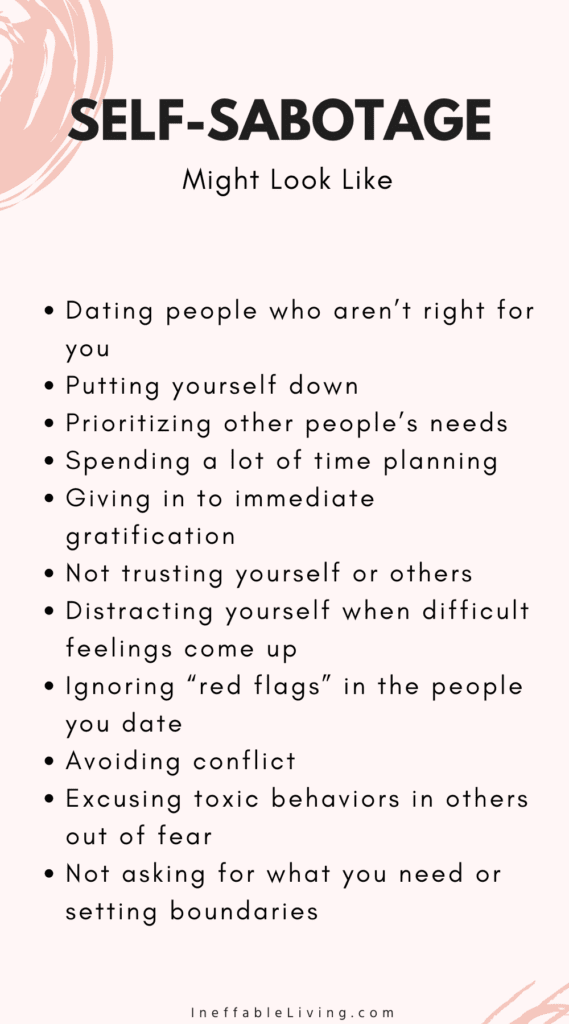
Step #10: Build Healthy and Supportive Relationships
Studies show that people who enjoy healthy, supportive relationships are happier and less stressed than those who don’t.
A study published in the American Journal of Epidemiology, shows that individuals who lacked social and community ties were two to three times more likely to die prematurely than those who were well connected.
The Change: Develop more healthy and supportive relationships, while avoiding those that are toxic.
The following are some ways to help you cultivate better communication and intimacy in your relationships:
1. Quality Control
If you want to build more supportive relationships, it’s important to know what qualities you deem important in the relationship.
Make a list of the qualities that make you feel loved, and supported the most and another list of qualities that make you feel the opposite.
Connect with people who possess these supportive qualities, and avoid individuals who possess the latter.
Even though you can’t completely cut off certain individuals out of your life, avoiding them and limiting your exposure to those individuals is critical to your mental well-being.
2. Give and Take
Healthy, supportive relationships require both parties’ involvement. This is why you need to an active role in developing and maintaining your relationships, just as it’s important that your friend or loved one does the same. Otherwise, the relationship can cause resentment and disappointment.
Support your friends and loved ones, but also allow them to support you too.
3. Practice Healthy Communication
When disappointed, communicate your disappointment honestly and in a respectful way.
Avoid unhealthy behaviors such as silent treatment or holding grudges.
Related: Top 5 Tips On How To Be Assertive Without Being Rude
4. Listen Actively
Healthy, supportive relationships require that each person feels heard and understood. Take the time to really listen and seek to understand the other person by asking open questions and rephrasing what they said to make sure you got it right.

Even Five Minutes Are Better Than Nothing
Self-care opportunities happen all day long – getting some sunlight, making a hot cup of tea for yourself, writing down your thoughts in your journal, etc.
The best way to build a habit is to start small. Give yourself at least five minutes a day to connect with yourself.
Five-Minute Self-Love Hacks
Here are self-love acts you can do in five minutes:
1. Connect with nature
Go outside and enjoy the sunlight and the fresh air. Take a deep breath in through your nostrils. Feel the sensation of your lungs filling with air and exhale through your mouth while noticing the calming effect on your body.
2. Journaling
Write down your thoughts and feelings without judgment. Sometimes all you need is to release your thoughts and feelings and writing can help you with that.
Self-love affirmations
Pick up some self-love affirmations and read them aloud daily. The following are some examples:
- I am worthy of love.
- Loving myself is as important as loving others.
- It is okay to ask for what I need and want.
- My feelings are valid. There is no right or wrong way to feel.
3. Set an alarm for 10 minutes before you have to get up
Use the few minutes to think gentle thoughts that will help you start your day in a good mood.
Related: How To Manifest Self Love? Best 9 Ways To Grow In Self-Love
Conclusion
Loving yourself can change your life in so many ways.
You’ll be kinder and gentler with yourself. Your own encouragement and forgiveness will make your life more peaceful.
You’ll start living fully and embrace your life wholeheartedly.
By loving yourself, you’ll have more love to share with others. Your relationship will become healthier.
You become the creator of your own happiness.
FREE Printable Self-Love Worksheets (PDF)
FAQ
Isn’t Self-Sacrifice A Virtue?
Most cultures regard self-sacrifice as a virtue.
We’re taught that the more we take care of others, the better. Many of us believe that we aren’t worthy of love unless we’re we keep others happy, even if it means sacrificing our own happiness in the process.
However, studies show that self-sacrifice is linked to higher levels of stress and depression
By not taking care of ourselves and well-being, not only do we suffer but our relationships suffer too.
Furthermore, when we overgive, we tend to attract “over-takers” into our lives. After all, we need to find others who are willing to receive our devoted care.
This kind of relationship is out of balance and eventually leaving you feeling bitter and resentful.
References
Portions of this article were adapted from the books:
- Attachment Theory Workbook ©, April 19, 2020, by Emily Attached. All rights reserved.
- Self‑Love Workbook for Women ©, September 29, 2020, by Megan Logan. All rights reserved.
- The importance of self-love and how to cultivate it (medicalnewstoday.com)
- Self-Love and What It Means | Brain & Behavior Research Foundation (bbrfoundation.org)
- Learn How to Self-love | Psychological Health Care
- The science of self-love: the evidence-based benefits of loving yourself (nesslabs.com)
- The Scientific Benefits of Self-Compassion – The Center for Compassion and Altruism Research and Education (stanford.edu)
- Self-esteem in a broad-spectrum approach for mental health promotion | Health Education Research | Oxford Academic (oup.com)
- Why self-compassion – not self-esteem – leads to success – BBC Worklife
- Loving yourself more than your neighbor: ERPs reveal online effects of a self-positivity bias – PMC (nih.gov)
- Self-Love or Other-Love? Explicit Other-Preference but Implicit Self-Preference | PLOS ONE
- The Role of Self-Compassion in Development: A Healthier Way to Relate to Oneself – PMC (nih.gov)
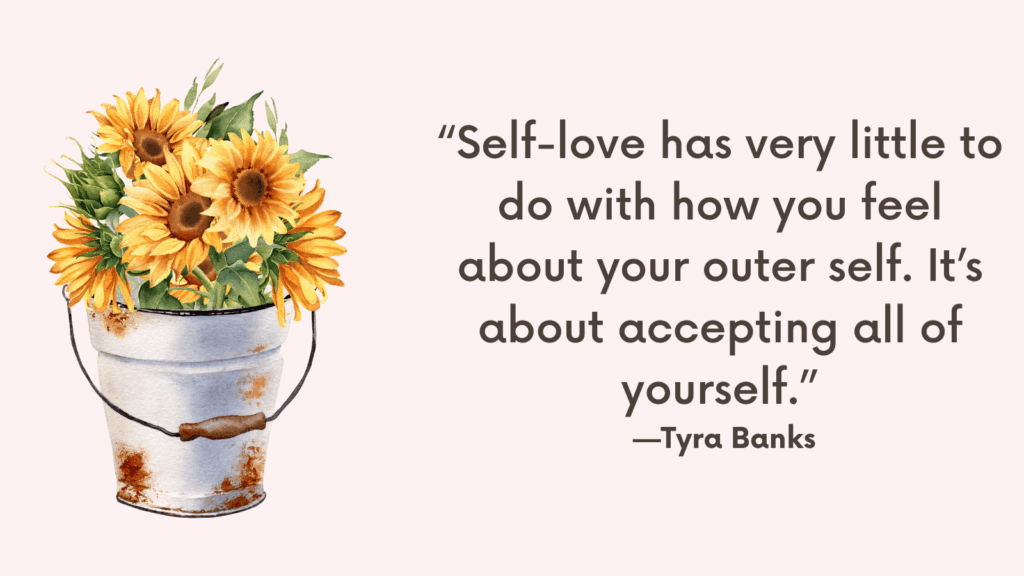


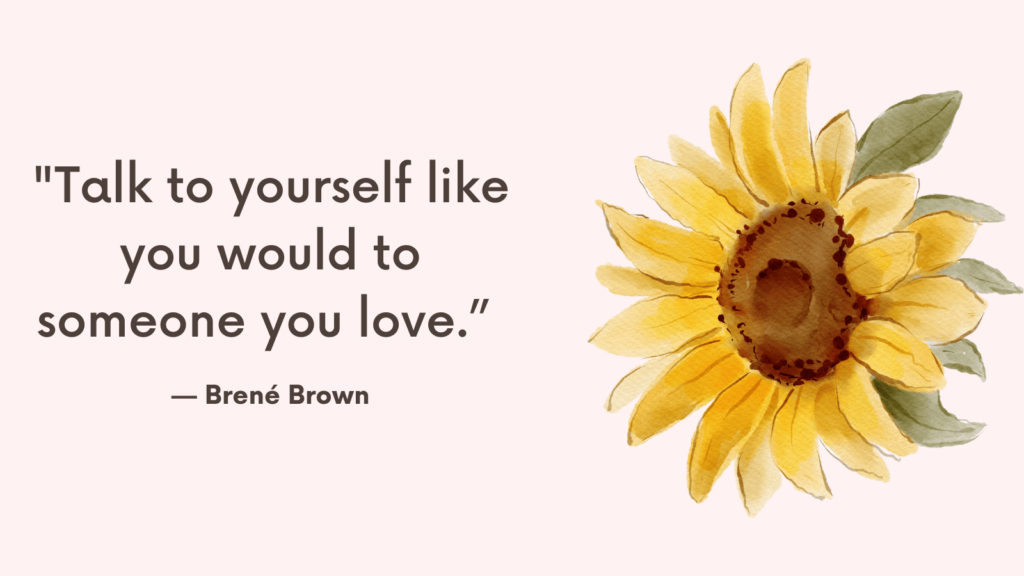
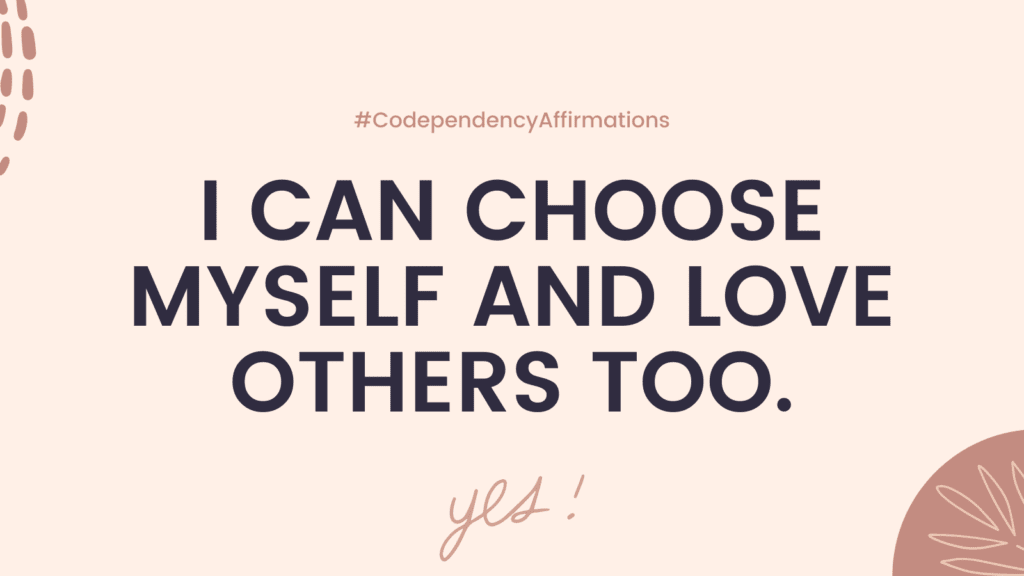
Comments are closed.